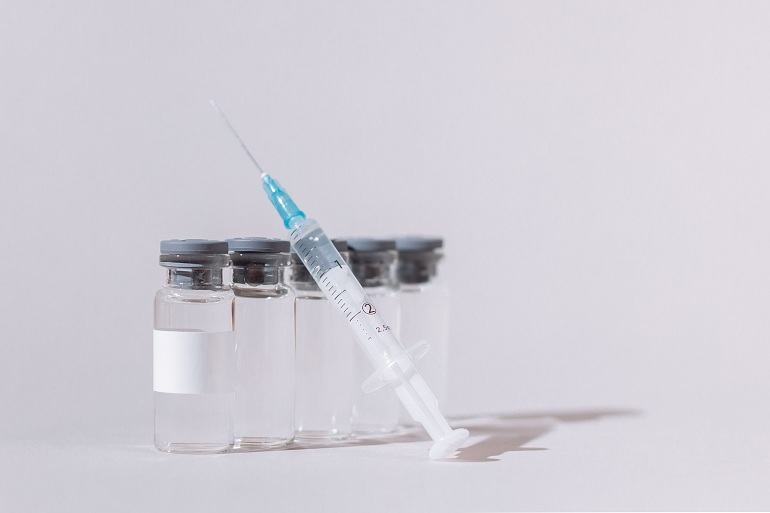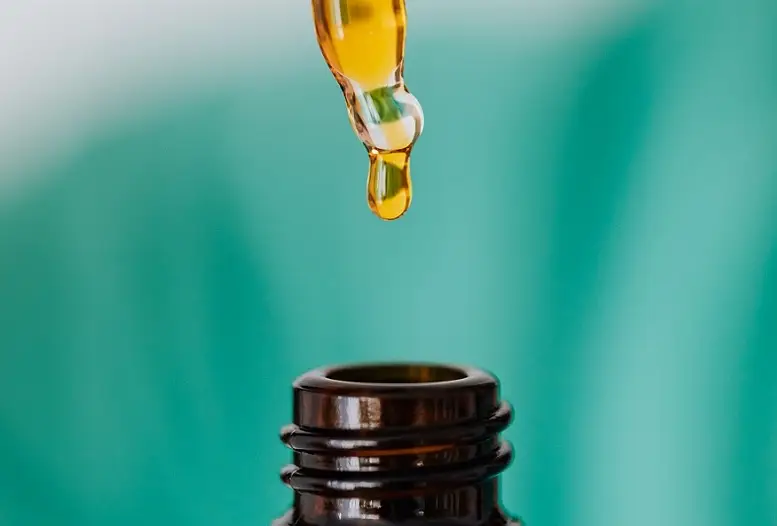While human growth hormone and steroids might be mistakenly used interchangeably by those unfamiliar with the distinctions, they are actually two distinct hormones with significantly different roles in the body.
The confusion is often exacerbated by the common use of both types of supplements by athletes. And the fact is, both human growth hormone and steroids are prohibited in athletic competitions.
However, there exist substantial differences between human growth hormone and steroids that merit exploration.

Human growth hormone (HGH) is a naturally occurring hormone produced in the brain within a structure known as the pituitary gland. Maintaining optimal HGH levels is crucial for various biological functions, which will be discussed here.
On the other hand, steroids or steroid hormones are generated by the adrenal cortex, testes, ovaries, and the placenta during pregnancy. Various types of steroids will be elaborated upon in this discussion.
So, what exactly are steroids, what is human growth hormone, and what sets them apart?
What Are Steroids?
The term steroids broadly refers to any compound featuring a characteristic set of four rings arranged in a specific configuration.
It is crucial to distinguish between the various types of steroids. The two most common types of steroids used are:
Corticosteroids: These emulate the effects of the cortisol hormone and do not possess muscle-building or performance-enhancing effects. Corticosteroids function by leveraging their potent immunomodulatory properties to alleviate chronic inflammation observed in autoimmune conditions like inflammatory bowel disease (IBD), multiple sclerosis, and others.
Anabolic Steroids: The type of steroids often misused is anabolic androgenic steroids (AAS), which replicate the effects of the male hormone testosterone. People use AAS to build muscle or enhance strength. These steroids can be ingested or injected into the muscles.
The positive effects sought by individuals using AAS include:
— Increased lean muscle mass and strength
— Enhanced energy, motivation, and confidence
Steroids Harmful Effects
AAS drugs impact individuals differently and with varying intensity. However, the longer the drug is used and when several AAS drugs are taken simultaneously (referred to as stacking), the risks and harms associated with use are heightened.
Harmful Effects of Short-Term Use:
— Water retention
— Acne
— Reduced sex drive
— High blood pressure and cholesterol
— Heart disease and stroke
— Diabetes
— Abnormal liver function
— Mood swings, irritability, and aggression
— Fatigue
— Impulsive behavior, risk-taking behavior
— Depression
— Sleep problems
— Hallucinations
— Growth stunting and premature bone aging in adolescents
Harmful Effects of Long-Term Use:
In males, long-term use of AAS can additionally cause:
— Hair loss
— Development of breast tissue
— Shrinking testicles and decreased sperm production
In females, long-term use of AAS can cause:
— Facial hair and a deeper voice
— Changes in the menstrual cycle
— Decreased breast size
— Enlarged clitoris
What Is human growth hormone?
Human growth hormone, commonly known as hGH and somatotropin, is an innate hormone produced and released by your pituitary gland.
Its primary production occurs during the growth stage of life, reaching its peak at puberty and gradually decreasing in later stages of life.
HGH plays a crucial role in building, repairing, and maintaining brain and organ tissue, facilitating bone development, and promoting cell growth and regeneration.
The pituitary gland is a component of the hypothalamic-pituitary-adrenal axis (HPA axis), a vital element of the neuroendocrine system responsible for responding to and managing stress in the body.
HGH, often working in tandem with the liver-produced hormone insulin-like growth factor 1 (IGF-1), is accountable for various essential growth-related activities, including:
— Facilitating increased lean muscle mass.
— Managing metabolic responses, such as blood sugar control.
— Regulating mental health by combating depression and anxiety.
— Strengthening bone density.
Understanding the Effects of Decreased HGH Production in Your Body
As the aging process unfolds, the pituitary gland gradually reduces its production of growth hormone, a phenomenon that often commences in our thirties. By the time we reach our forties and fifties, the repercussions of this growth hormone deficiency become apparent, manifesting in various indicators:
Weight Management Challenges: Maintaining your desired weight becomes increasingly challenging despite efforts in diet, exercise, and healthy habits. Even individuals who were naturally slender may find themselves grappling with unwanted pounds, leading to frustration, depression, and diminished self-esteem.
Lack of Motivation: The once-exciting world of work loses its allure as low energy levels take a toll. The enthusiasm and drive that fueled your business or profession begin to wane, potentially affecting your competitiveness. Reclaiming vitality and enthusiasm becomes essential to avoid falling behind your peers.
Extended Workout Recovery: Physical exertion that once left you energized now results in fatigue, and recovery takes longer. The diminishing returns from your gym sessions may be disheartening, with reduced gains in lean muscle mass.
Physical Transformation: A shift occurs from a trim, lean physique to one characterized by flabbiness, diminished muscle tone, and sagging skin. The reflection in the mirror may seem unfamiliar, deviating from the self-image you once recognized.
Low HGH levels manifest differently in each individual, and the aforementioned examples offer just a glimpse into the potential effects of decreased growth hormone.
For those seeking to naturally enhance human growth hormone secretion, dietary supplements like GenF20 Plus could be a prudent choice.
Exploring the Differences Between Steroids and HGH?
To begin with, it is crucial to highlight that somatropin (HGH) medications are legally permissible when prescribed by a licensed physician. Anabolic steroids, conversely, are strictly illegal in all circumstances.
Furthermore, despite both being hormones integral to the growth process, their respective impacts on the body exhibit significant distinctions.

During the screening procedures conducted by a physician to assess the eligibility of an individual with an HGH deficiency for therapy, the risks of severe side effects are minimal.
Hormone replacement therapy involving HGH is sanctioned by the FDA, and reputable pharmaceutical manufacturers produce HGH (somatropin) products of high quality. These HGH medications undergo rigorous scrutiny for purity and safety, a practice not mirrored in the case of steroids.
Unraveling the Confusion Between HGH and Steroids
The confusion between HGH and steroids arises from several factors. Potential reasons for mistaking one for the other include:
Both are anabolic, fostering muscle development, albeit through distinct mechanisms and with different side effects.
Administration via injection is a shared feature, a delivery method commonly linked, in popular perception, with synthetic performance-enhancing drugs.
Illicit producers of steroids on the black market often manufacture illegal and impure HGH products, selling them at standard market value.
Athletes frequently misuse both substances to capitalize on their performance-enhancing benefits.
Occasionally, both are erroneously touted as a source of eternal youth, with injectable HGH therapy showing potential signs of anti-aging effects.
The Risks Associated with Unauthorized Usage of HGH and Steroids
Since steroids can only be acquired through illicit channels, they are susceptible to tampering or contamination. A World Health Organization study revealed that one in ten medical supplies originating from the Third World (a significant source of illegal steroids in the USA) is either counterfeit or fails to meet the quality standards upheld by pharmaceutical-grade products like FDA-approved HGH.
When administering HGH or any hormone, continuous oversight by a seasoned endocrinologist is crucial. This supervision is an indispensable aspect of therapy that ensures the well-being of the patient.
In contrast, due to the illicit nature of steroids, monitoring the health of individuals using them is unfeasible.
HGH Vs Steroids: Key Takeaways
As highlighted in this article, it’s essential to recognize that HGH and steroids are distinct entities, even though the reasons for potential confusion are understandable.
HGH stands as a peptide hormone, not a steroid. A peptide comprises substances formed from two or more amino acids. While individuals might mistakenly associate human growth hormone (HGH) with other performance-enhancing substances, it is crucial to note that HGH is not a steroid.
Some athletes may combine HGH with banned substances, such as anabolic steroids, in an attempt to improve their competitive performance. However, this use of steroids is illegal. The confusion between HGH and steroids often arises because HGH can produce similar effects to certain steroids.
The use of anabolic steroids is strictly forbidden by law under all circumstances. There are no recognized medical purposes for the abuse of anabolic steroids, and both individuals engaging in illegal steroid use and doctors unethically prescribing them to patients face severe legal consequences. Moreover, illegal steroid abuse leads to numerous serious and often irreversible health consequences, as discussed earlier.
In contrast, HGH replacement therapy is a sanctioned medical practice that provides various benefits to patients diagnosed with HGH deficiencies. These patients receive the treatment, experiencing improved athletic performance among other positive outcomes.